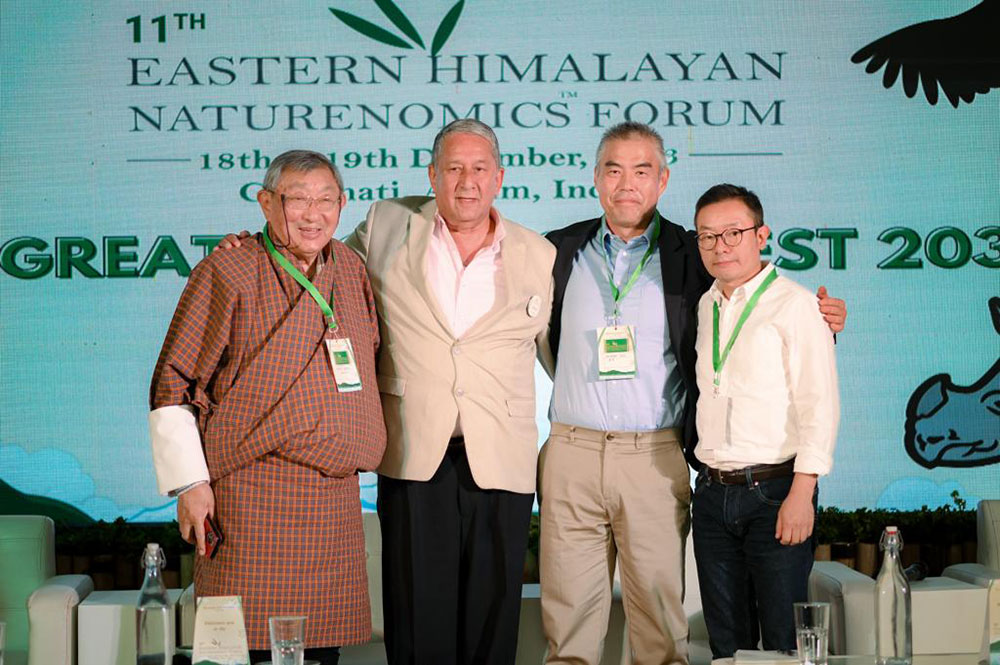
Uniting over 60 participants from 15 countries with the goal of restoring 1 million hectares of forests and farmlands by 2030, the Balipara Foundation launched the 11th edition of the annual Eastern Himalayan Naturenomics Forum.
This year’s theme, ‘Great People’s Forest 2030’, aligns with the UN Decade of Restoration agenda. The theme originates from the ambitious Great People’s Forest initiative, a collaboration between the Balipara Foundation and Conservation International, introduced earlier this year at the G20, aiming to restore 1 million hectares of forests and farmlands by 2030.
Ranjit Barthakur, Founder of the Balipara Foundation, emphasised the significance of valuation in Naturenomics. He highlighted that leadership based on value will be a critical factor for success, speaking at Bhutan’s Vision 2030 panel.
In his opening remarks, Chanakya Chaudhary, Director of Tata Steel Foundation and Vice President of Corporate Services at Tata Steel, stressed the vital role businesses play in translating global commitments on climate and biodiversity into tangible action. He emphasised the importance of collaboration with communities, respecting their ways of life and livelihoods, to effectively address environmental challenges.
Vandana Shiva (PhD), an environmentalist and food sovereignty advocate, underscored the democratic nature of forests, rejecting notions of inferiority and superiority within them. She advocated for initiatives that promote harmony and co-existence between humans and forests, challenging the historical separation between the two.
Approximately 1 billion inhabitants reside between the mountainous regions of Bhutan and Nepal and the mangrove-growing areas of India and Bangladesh. These four countries share a massive connected ecosystem—the Ganges and Brahmaputra—that spans from the mountainous peaks of Bhutan and Nepal to the delta in Bangladesh.
The forum delved into key regional levers required to amplify individual restoration efforts, discussing sessions on policy and economy, youth power, and technology. These sessions explored empowering young people as environmental leaders and utilising remote-sensing technology and AI for mapping ecosystem health, envisioning a pathway towards a regenerative natural capital economy.
Discussions on land, energy, waste, water, air, and carbon were also held.
The restoration agenda for Bhutan, Bangladesh, and the North East to achieve by 2030 was outlined during the two-day session. Additionally, the Balipara Foundation recognised and awarded active youths contributing to environmental conservation.
Since 2007, the Balipara Foundation has pursued a community-based approach to conservation through the proprietary concepts of Naturenomics. The organisation has played a role in increasing incomes by 40 percent for farmers and indigenous people, impacting 35,000 households, and planting 2.1 million trees.
Highlighting the urgency of their mission, the initiative aims to involve forest conservationists at the local government level, with expectations of completion by 2030.
Last year, 1.5 million people in the eastern Himalayan region were displaced due to extreme weather events, with projected devastating consequences by 2050 if the situation persists.












